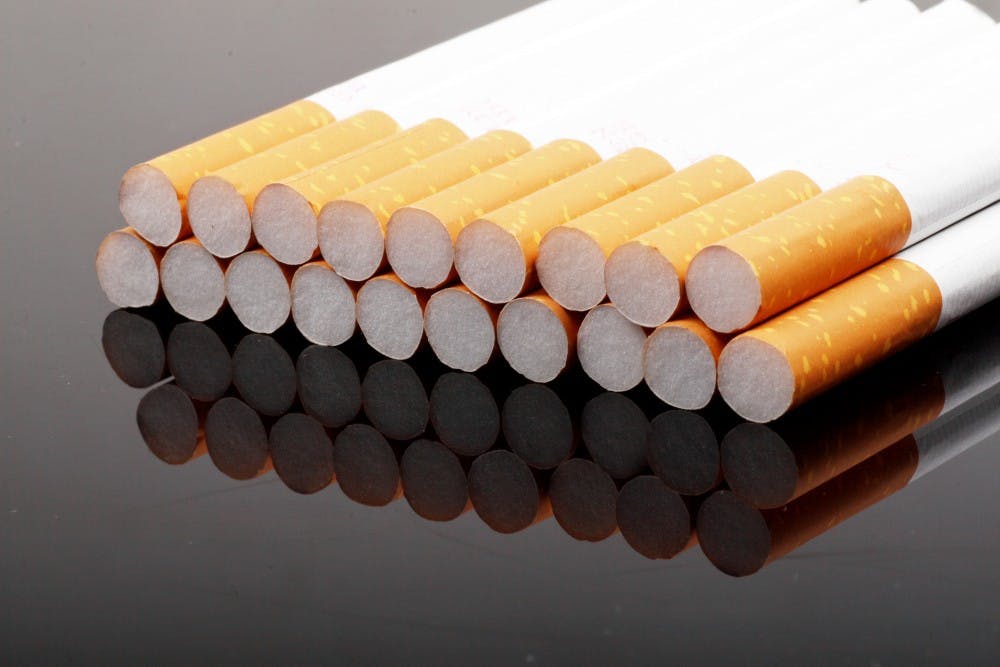South Carolina has one of the lowest cigarette taxes in the U.S. At 57 cents a pack, cigarettes are extraordinarily cheap and there is little economic reason to quit. While this may be good for convenience store owners and the tobacco industry, it does little to encourage healthy behavior among the nearly 20 percent of South Carolinians still smoking. South Carolina would stand to gain significantly in health outcomes at little economic cost by embracing higher cigarette taxes.
Excise taxes on cigarettes have proven to be an effective strategy to lower smoking rates in both the U.S. and abroad. The idea is simple, if you want someone to stop buying something make the price higher than they are willing to pay. Of course, the logic behind this gets a bit skewed when considering something as complex as addiction. However, over the long term, cigarette taxes have acted as incentive to quit for current smokers and barrier to entry for younger people considering buying their first pack. The economic incentive cannot be overstated. In high cigarette tax states like New York, Massachusetts and California, cigarette smoking is at an all time low. Even lower, in fact, than the U.S. average.
Long-term drops in cigarette use actually have some very positive benefits. Every year, “smoking-related illness in the United States costs more than $300 billion.” Divided equally among the states (not controlling for smoking population per state), this costs South Carolina nearly $6 billion every year. Lowering this number is particularly important when you consider that smokers are more likely than not to be on Medicaid or uninsured, meaning the costs of smoking largely fall on already overstretched government coffers.
Some argue, however, that cigarette taxes shouldn’t be expanded as they would mostly impact lower income Americans. Others go even further and suggest that a tax hike would hurt the economy. Frankly, many of these fears are totally unfounded or ignore existing data.
It is true in some ways that cigarette taxes can be considered regressive, that is, having a significant negative impact on lower income groups. However, this is only the direct cost of the tax, not the overall benefits of it. For one, this tax being regressive assumes that cigarette consumption remains linear after the introduction of the tax, an idea that is patently false. Every “10% increase in price has been estimated to reduce overall cigarette consumption by 3–5%.” Secondly, this assumes the purpose of the tax is to increase revenue significantly and sustainably over time, something that isn’t the real purpose of such a tax. The purpose of a cigarette tax is to decrease consumption for the public and individual good – decreasing public medical and productivity costs and boosting individual health outcomes. With that in mind, viewing a cigarette tax increase as a regressive tax increase ignores the fact that it is to serve as incentive to quit rather than a steady stream of revenue.
As for the supposed economic downturn we’d apparently see from a hike in the cigarette tax, these fears simply have no basis in reality. The tobacco industry, for example, has been seeing massive growth in recent years, largely as a result of passing the rising costs of cigarettes off to customers, less competition, overseas markets and new ventures, like e-cigarettes. The overall increase in cigarette taxes seems to have had little impact, in the long run, on the profits of these multinational conglomerates. Farmers themselves have faced surprisingly little economic impact, as crop prices have hovered near $2 per pound since the 2000’s. This is despite increasing regulations and decreased consumption. Clearly, a modest cigarette tax increase in a state like South Carolina would have minimal, if any, impact on the tobacco industry, much less the economy as a whole.
South Carolina has an almost natural aversion to higher taxes, despite the fact they only have a “tenuous” link to economic performance. Even the fight over the desperately needed increase in the gas tax was fraught with arguments over the potential negative impact of increasing gas prices. However, much like the fight over a gas tax increase, the fight over a cigarette tax increase is a desperately needed one. The health of the state is important, both in lives and money to be saved. We would be foolish to pass this opportunity up.

